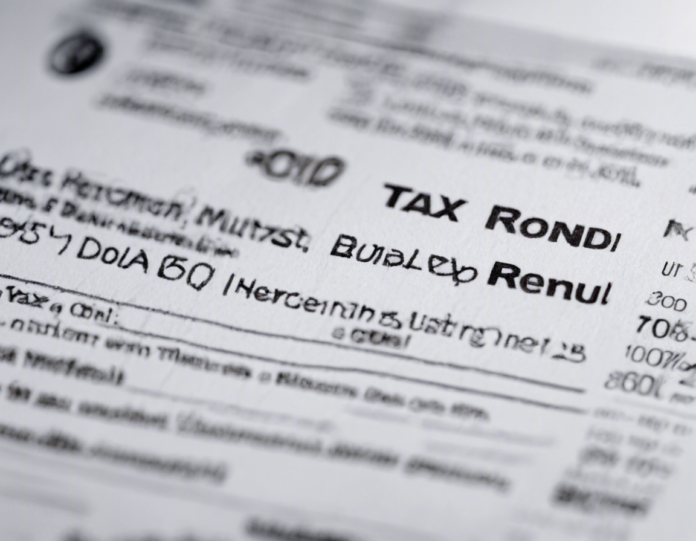Are you one of the lucky ones who have recently received a letter from HM Revenue and Customs (HMRC) stating that you are due a tax refund? Exciting news, right? While it always feels good to receive unexpected money back from the taxman, you might be wondering why HMRC is sending you a letter indicating that you are eligible for a tax refund averaging £689.
Let’s delve into the details of why you might be receiving such letters from HMRC and what steps you should take to claim your tax refund.
Understanding Tax Refunds from HMRC
Tax refunds are rebates of overpaid taxes that are issued to taxpayers by the government tax authority, in this case, the HMRC in the UK. There are several reasons why you might be eligible for a tax refund:
Overpaid Taxes
One of the most common reasons for receiving a tax refund is that you have paid more tax than you owe. This could be due to various factors, such as errors in your tax calculations, changes in your tax code, or benefits like Marriage Allowance that you didn’t claim.
Employment Expenses
If you incur work-related expenses that are not reimbursed by your employer, you might be eligible to claim tax relief on these expenses. This could include expenses like uniforms, tools, travel, or professional fees.
Marriage Allowance
As mentioned earlier, Marriage Allowance is a tax relief that allows you to transfer a portion of your Personal Allowance to your spouse or civil partner if you meet certain criteria. If you haven’t claimed Marriage Allowance but are eligible for it, HMRC might be notifying you of the potential tax refund.
Other Reasons
There could be various other reasons why you are due a tax refund, such as making charitable donations, overpaying on your pension contributions, or paying too much tax on interest earned from savings.
What to Do If You Receive a Tax Refund Letter from HMRC
If you receive a letter from HMRC stating that you are due a tax refund, follow these steps to claim your refund:
Check the Details
Review the letter carefully to ensure that the information provided by HMRC is accurate. Check your personal details, the tax year in question, and the amount of refund you are entitled to receive.
Claim Your Refund
To claim your tax refund, you will need to follow the instructions outlined in the letter. This may involve logging into your HMRC online account, filling out a form, or providing additional information to support your claim.
Be Wary of Scams
Be cautious of any communication claiming to be from HMRC that asks for your personal or financial information. HMRC will never contact you by email, text message, or phone to discuss your tax refund, so be vigilant against potential scams.
Seek Professional Advice
If you are unsure about how to proceed with claiming your tax refund or if you believe there might be errors in the calculation provided by HMRC, consider seeking advice from a tax professional or accountant.
Frequently Asked Questions (FAQs) About HMRC Tax Refunds
1. How long does it take to receive a tax refund from HMRC?
Once you have submitted your claim for a tax refund, HMRC aims to process refunds within 5-10 working days. However, this timeline can vary depending on the complexity of your case.
2. Can I claim a tax refund for previous tax years?
Yes, you can claim a tax refund for up to four previous tax years if you have overpaid taxes during those years. HMRC allows you to make retrospective claims to correct any errors or omissions.
3. What happens if I don’t claim my tax refund?
If you are eligible for a tax refund but fail to claim it, HMRC will hold onto the money for up to four years. After that period, the unclaimed refunds may be treated as unclaimed assets by the government.
4. Can HMRC take back a tax refund?
HMRC has the right to recover tax refunds that have been incorrectly paid out due to errors, fraud, or misrepresentation. If HMRC discovers that a refund was issued in error, they can request repayment from the taxpayer.
5. How can I check if my tax refund letter from HMRC is genuine?
To verify the authenticity of a tax refund letter from HMRC, you can contact HMRC directly using the contact details provided on their official website. Avoid clicking on any links or providing personal information through unsolicited communication channels.
Receiving a tax refund letter from HMRC can be a pleasant surprise, but it’s essential to handle the process of claiming your refund diligently and securely. By understanding the reasons behind tax refunds, following the necessary steps to claim your refund, and staying informed about potential scams, you can make the most of this unexpected windfall from the taxman.





